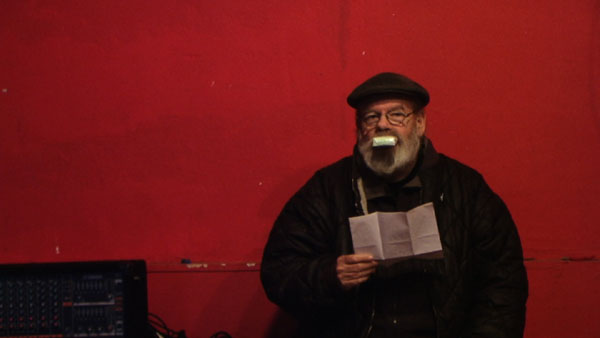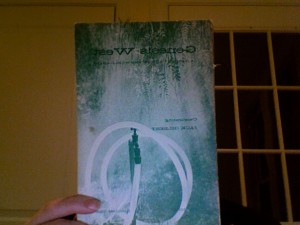Michael Kimball Guest Lecture #5: Language and Sentences
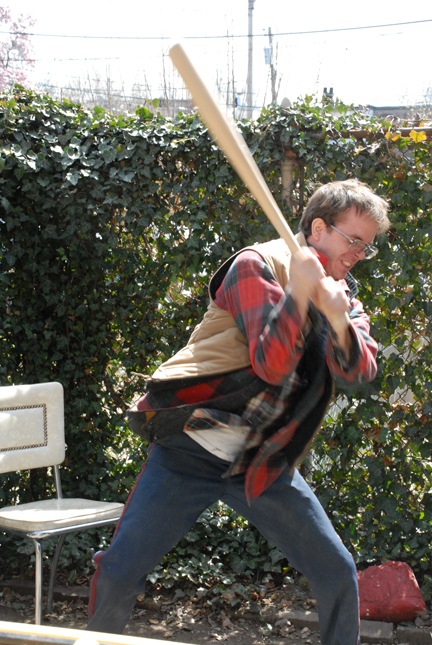 We are writers. Writers use language. There are lots of things we can do with language. As Robert Lopez says: “I always start with language.” And when he says that, he means his language, his particular language, and that every writer should have their own particular language. Raymond Carver gets at that with this (from “On Writing”): “It’s akin to style, what I’m talking about, but it isn’t style alone. It is the writer’s particular and unmistakable signature on everything he writes. It is his world and no other. This is one of the things that distinguishes one writer from another.”
We are writers. Writers use language. There are lots of things we can do with language. As Robert Lopez says: “I always start with language.” And when he says that, he means his language, his particular language, and that every writer should have their own particular language. Raymond Carver gets at that with this (from “On Writing”): “It’s akin to style, what I’m talking about, but it isn’t style alone. It is the writer’s particular and unmistakable signature on everything he writes. It is his world and no other. This is one of the things that distinguishes one writer from another.”
When I think of language, I think of sentences. As John Banville says: “The sentence is the greatest human invention of civilization.” There are lots of things that we can do with a sentence. We can manipulate the syntax, the diction, the stresses, the tenses, the acoustics, the morphemes and the phonemes, syllables and prefixes and suffixes, the speed, and the length. As Andy Devine says: “The English sentence – because of English syntax – is infinitely expandable.”
We can manipulate objects, subjects, predicates, infinitives, participles, gerunds, phrases, clauses, and determiners. We can manipulate articles, nouns, verbs, adjectives, adverbs, conjunctions, and prepositions. Joseph Young says: “Articles propel the sentence, push it off and keep it moving.” Stephen King says: “The road to hell is paved with adverbs.” Joseph Brodsky says: “Don’t use too many adjectives.” Andy Devine says: “Adjectives are not as bad as adverbs.”
For instance, I like to structure sentences around articles and conjunctions and prepositions—the more perennial parts of language—so that my narrator has a singular way to speak. And I like to move prepositions to the end of the phrase or the end of the sentence. That was one of the first sentence things that I figured out for myself. It’s not what we’re taught to do, but it is still quite obviously English, and it creates a kind of semantic link in the sentence—and this vaguely unsettling feeling.
Michael Kimball Guest Lecture #4: Story and Plot
“Fuck the plot.” Edna O’Brien says that in a Paris Review interview. She then goes on to say this: “What matters is the imaginative truth.” I don’t know what she means, exactly, by “imaginative truth,” but I can imagine what she means.
It reminds me of something that somebody told me Rick Whitaker said: “Plot tells you how their life turns out. What the fuck do I care about how their life turns out? I want to know their heart.”
And that reminds me of this quote from Andy Devine: “We all know how the story ends. If you have the baby, then the baby will die. If you fall in love, then the love will end.”
In spite of my affection for those three quotes, I still like to think about story and plot. I still like it when things happen in fiction. In fact, I have always thought that one of the great things about being a fiction writer is that you can make anything happen.
5 blars (or brain cattails, put in your head-vase)
1.) The University of Indiana’s main library sinks one inch per year. Why? The engineers forgot to calculate the weight of? [Go ahead, lovers, guess]
2.) Badass Pub Crawl in LA. What do you say to Aimee Bender while drunk? “Yo! Can I stumble into, vomit on every reviewer so lazy as to compare you to Ray Carver, Aimee? ? Can I be like your anklet monitor, Aimee? Just near you? I like the way you spell your name.” Crash.
3.) “true originality doesn’t exist anyway, only authenticity” Bullshit meter?
4.) An interview with Carole Maso (Brian Evenson on the inquiry machine). This is old, OK. “HTML is a blog, what is this old shit, yo?” Blah blah. Go lift weights in the shower, so you can sweat yourself and clean yourself simultaneously. Now you’re in the future. So chill-axe.
5.) This Heide Hatry shit is bloody and controversial so just be careful and don’t swoon on me. (We all know pigs are smarter than dogs [don’t get me started on cats] but pigs taste great, right?] Etc. Etc. Yawn. Slurp. Etc.
httpv://www.youtube.com/watch?v=fyHq26xJ5as
Did You Just Tell Me To Shut Up? – A Guest Post from Giancarlo Ditrapano
[The Tyrant sends his thoughts on the unpspeakable. Please enjoy. – BB]
“Most stuff that is genuine is better left unsaid.” This is from a letter written in 1993 by J.D. Salinger to his friend E. Michael Miller (for this story, go here). Sounds like old boy’s last plea, doesn’t it? That last line of the red one, you know: “Don’t tell anybody anything. If you do, you start missing everybody.” This thought occupies my mind past the point of it being healthy. There are so many things for me that I cannot write down, or will not write down. I have tried to write them down, and I have written them down, and hated myself afterwards for doing it.
It’s the same with speech. There are so many things I can’t speak about, won’t speak about. I have tried to speak about them, and I have spoken about them, and hated myself afterwards for doing it. I don’t know how to categorize these untouchables for there is no common denominator that I can pin down. I am not talking about gossip or secrets. Forget all that shit. I’m talking about the times or thoughts or experiences that cannot be regaled, or feel like they shouldn’t be regaled (even though they could be regaled but you would just feel like shit afterwards because no matter how good it felt to tell it, once you’re done it always feels like you have just let go of a kite string). That bit of advice from Dorothy Parker (about how if you have an idea for a story, not to speak about it or it will lose its steam) has something to do with it, but not exactly. Or it’s like that feeling you feel in that span of time between the moment you hear some good news (Writers, insert “acceptance-letter joy” here) and the moment that you start blabbing your head off about it. As soon as you start communicating it, telling others about it, something disappears, doesn’t it? And there was something good about that something that disappeared, wasn’t there? It’s not exactly like, but is kind of like, how you and your good friend would never talk about how good of friends you are because the mere mention of you even being friends would cause your friendship to wither somehow.
A Bullshit-y, Obscure Post: Literature as Violence
From Walter Benjamin’s essay “Critique of Violence”:
If the rule of myth is broken occasionally in the present age, the coming age is not so unimaginably remote that an attack on law is altogether futile. But if the existence of violence outside the law, as pure immediate violence, is assured, this furnishes proof that revolutionary violence, the highest manifestation of unalloyed violence by man, is possible, and shows by what means. Less possible and also less urgent for human kind, however, is to decide when unalloyed violence has been realized in particular cases. For only mythic violence, not divine, will be recognizable as such with certainty, unless it be in incomparable effects, because the expiatory power of violence is invisible to men. … Divine violence, which is the sign and seal but never the means of sacred dispatch, may be called “sovereign” violence.
“When you realize how little these people like being themselves, you begin to understand why they want to escape consciousness”

 Today at the tree-tucked magic barn of Grey Matter Books in Hadley, MA, I bought for $8 the very first issue of Genesis West, the magazine Gordon Lish edited pre-Quarterly, so we’re talking on the fun bus with Neal Cassady and not out to lunch with Raymond Carver. Grey Matter Books had the entire set of Genesis West, all seven volumes, except now they don’t, because Nat Otting owns six and I own one.
Today at the tree-tucked magic barn of Grey Matter Books in Hadley, MA, I bought for $8 the very first issue of Genesis West, the magazine Gordon Lish edited pre-Quarterly, so we’re talking on the fun bus with Neal Cassady and not out to lunch with Raymond Carver. Grey Matter Books had the entire set of Genesis West, all seven volumes, except now they don’t, because Nat Otting owns six and I own one.
In this 1962 issue is an interview between Lish and Jack Gilbert, whose book Views of Jeporody had at the time just won the Yale Younger Poets Series award. After the break are two cool excerpts from the conversation, one about that old hobbyhorse of poetry’s relevance, and one in which Gilbert takes to task the aesthetics of the Beat movement. The whole interview is terrific, and I post these excerpts not to signal unequivocal agreement with Gilbert’s grouching, but to air for the consideration of contemporary relevance some pretty solid gnashing from the early mouth of a major poet.
Michael Kimball Guest Lecture #3: The Rough Parts
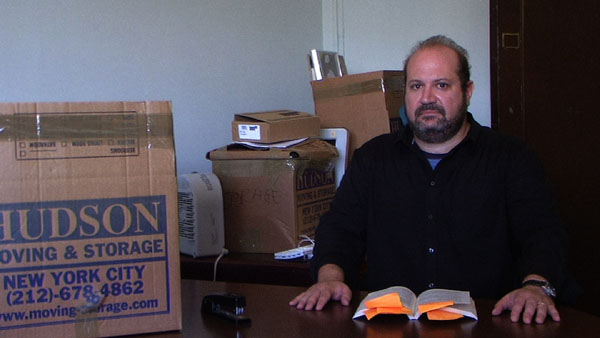
Here’s a quote from Rachel Carson: “The discipline of the writer is to learn to be still and listen to what his subject has to tell him.” I always read “still” as “sit still,” which makes me think of this quote from Harry Crews (via Opium): “Sometimes you need to affix your ass to the chair.” That is, sometimes, sitting down and doing the work can be the most difficult part of being a writer. Sometimes, it’s the other parts of life that get in the way. Other times, it is the fiction itself, how we think about the fiction at different points in the process.
So how does the writer get through the rough parts, the blank parts, the parts that we know suck? Virginia Woolf says it is determination: “It is worth mentioning, for future reference, that the creative power which bubbles so pleasantly in beginning a new book quiets down after a time, and one goes on more steadily. Doubts creep in. Then one becomes resigned. Determination not to give in, and the sense of an impending shape keep one at it more than anything.”
Salute to Salu
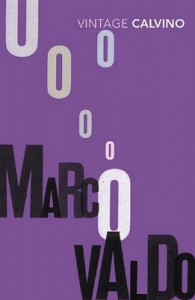 Caustic Cover Critic interviews Michael Salu. Salu just did the Vintage Classics’ Italo Calvino and Raymond Carver reissues. His blog here.
Caustic Cover Critic interviews Michael Salu. Salu just did the Vintage Classics’ Italo Calvino and Raymond Carver reissues. His blog here.

